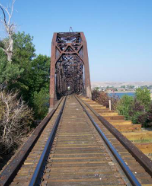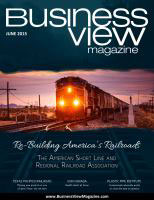Building on a legacy of forward thinking in specialized construction products
What began more than a century ago as a small, family-run, lumber business in Des Moines, Iowa, is now a respected leader in the pre-fab housing / railroad / highway construction sectors. Yet, while the scope, product lines and customer base of the business have grown immensely, its core principles and work ethic haven’t changed.
Company founder, William Wheeler, would be pleased that the company remains family oriented. Current owner, David Hoak, is a third generation member of the Wheeler team. His grandfather worked with William in the early days; his dad and uncle continued the tradition, and David’s son will soon be joining the ranks.
Wheeler now has five facilities, providing a variety of specialized building products and services to the upper mid-west and beyond:
Des Moines, Iowa – Corporate Headquarters
Bloomington, Minnesota – Erickson Engineering – Highway Products Group
Whitewood, South Dakota – Timber Fabrication and Treating
Shakopee, Minnesota – Steel Fabrication, Landscape Supply
Waverly, Kansas – Truss & Wall Panel Fabrication
Brains of the Operation
Jeff Parrett, V.P. of the Wheeler Lumber division in South Dakota, knows first-hand the value of company history and how it translates to a prosperous future. “I’ve been here 28 years and when I came in there were a lot of older gentlemen I got to meet. With history, comes a lot of brain power. We’ve learned from our mistakes. When we talk to people, we let them know we’ve done this thing before – we know what the issues are, what to avoid and how to approach it. This experience applies not just on the lumber side, but with engineering and other facets of the business we’ve developed.”
 Corporate-wide, Wheeler has a labor force of about 125. That number fluctuates with the seasons. The treating plant, for example, has between 12 and 30 workers, depending on product demand at different times of the year.
Corporate-wide, Wheeler has a labor force of about 125. That number fluctuates with the seasons. The treating plant, for example, has between 12 and 30 workers, depending on product demand at different times of the year.
While Wheeler’s core business is centred in the upper mid-west, Parrett notes, “Our Erickson Engineering division for structural design pretty much sticks to the Minnesota office, but we do sell nationwide. Our truss business in Kansas supplies primarily localized projects, though we go as far as Texas and Colorado. The steel bridges produced in Shakopee are sold nationwide. Our primary business is railroads – building bridge timbers for repair work. We sell mostly to the short lines. And we do reach out to the east coast, to heavy highway contractors, supplying timber bridges that we manufacture for ERT work, and recreation-type structures.”
Value Plus
Financially, value-added factors are what feed the Wheeler revenue stream. Case in point: the treating plant that produces engineered goods for timber bridges also does in-house engineering of the structures.
Parrett notes, “For the railroad business, we do chalk drawings. Any product that requires engineering or fabrication, where we can add value to a piece of wood, is a good revenue stream for us. Commodity-type products like crossties, utility poles – there’s really no value added there, other than, in our case, treating the wood.”
Keeping the Competitive Edge
Since the beginning, Wheeler has reacted to potential downturns by capitalizing on its strengths. As the world changed, this innovative company had the foresight to diversify and become market – rather than product – oriented, always, putting the customer first. That mindset continues today.
“Most of our contractors we’ve done business with for many  years. They know our products are good and our lead times are what we tell them. With our engineered products, plans and chalk drawings, we add value in-house, whereas our competitors are often lumber brokers or people who can’t offer the complete package unless they outsource. Anything that has to do with design is a selling point for us.”
years. They know our products are good and our lead times are what we tell them. With our engineered products, plans and chalk drawings, we add value in-house, whereas our competitors are often lumber brokers or people who can’t offer the complete package unless they outsource. Anything that has to do with design is a selling point for us.”
Change for the Good
During the recent recession, the house truss business suffered, prompting Wheeler to sell two of their three facilities. It kept Kansas and, thanks to the improving housing market, has opened a new plant in Houston.
The biggest company “reface” came in 2003, when a fire and explosion destroyed the treating plant. “At that time, we were treating wood with creosote,” says Parrett. “When we decided to rebuild at the same location, we switched to copper naphthenate. This non-hazardous chemical doesn’t have the restrictions that creosote has; it’s oil-based, cleaner, and works just as well. There’s been a push since 2003, to convince railroads that copper naphthenate is a good alternative to creosote. We’ve accomplished a good deal of that.”
Copper naphthenate works very well for bridge applications where there is traffic travelling underneath, because the product doesn’t leak and drip the way creosote does. It is also easier to handle and doesn’t burn the skin, so it’s safer for contractors, and Wheeler employees. The chemical is supplied by the Nisus Corporation, a key partner with Wheeler in promoting use of the product.
Future Forecast
Looking ahead, Parrett expects the biggest hurdle will be dealing with regulations from the EPA on all aspects of wood treating preservatives – from keeping current preservatives viable, to disposal of products after use. “These are big issues in the industry, but we’re gaining ground and have a lot of good companies helping us.”
Transportation is another timely concern. “Whether it be railroad, highway or DOT-type projects, 95 percent of our business relies on federal or state transportation funding so our customers can get their projects moving. The Short Line Association is our major customer. There’s a Short Line tax credit and funding incentive package to do rehab work on the rail lines that has been extended on an annual basis. When that credit is in place, our sale of crossties doubles. But now, Congress is balking. The package doesn’t cost the government much, and it really helps Short Line improve the tracks.” Given recent rail tragedies, that is crucial for everyone’s safety.
AT A GLANCE
WHO: Wheeler
WHAT: Providing quality building materials and services for a variety of construction segments in public and private infrastructures.
WHERE: Corporate Headquarters – Des Moines, Iowa and Major Facilities Locations – South Dakota, Minnesota, Kansas
WEBSITE: www.wheeler-con.com





